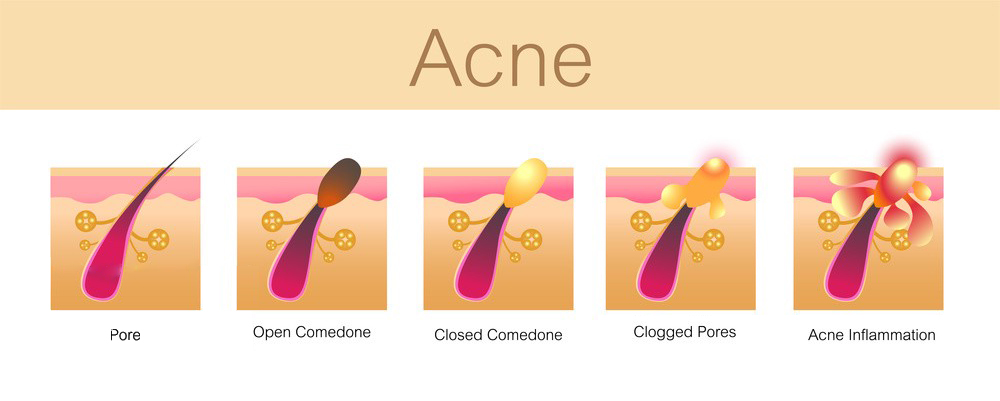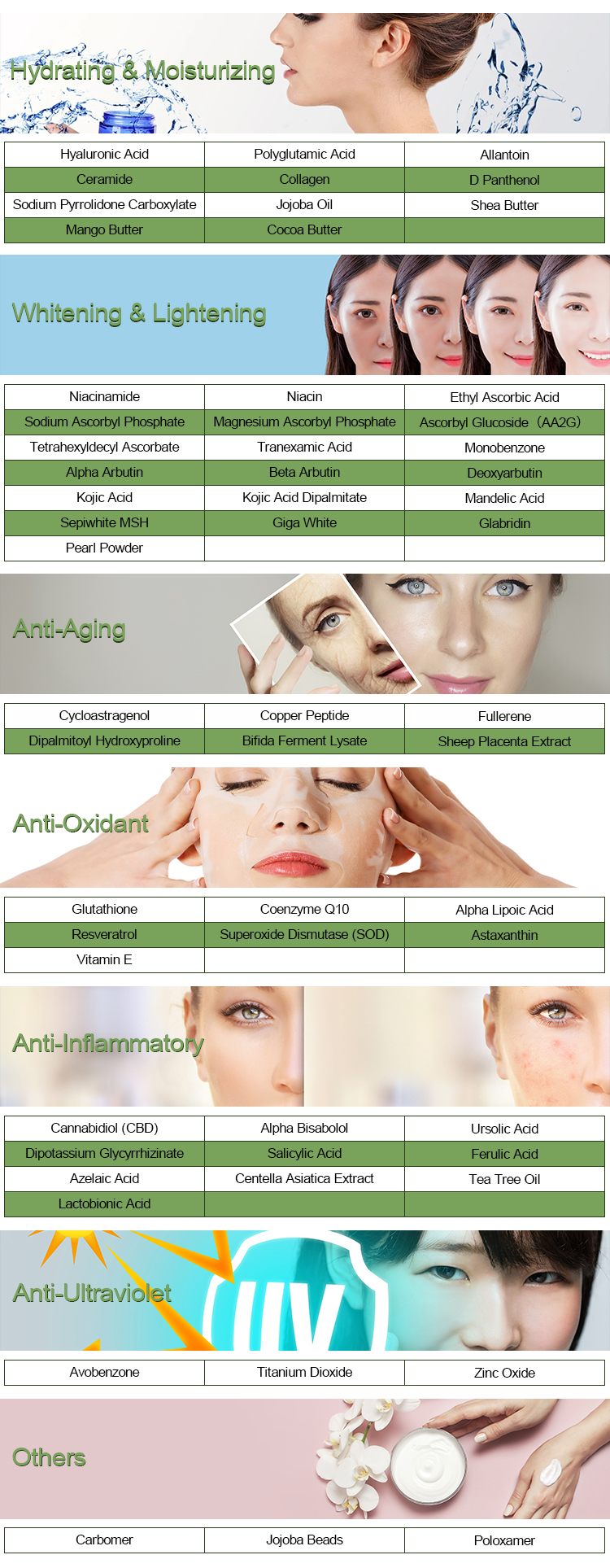Azelaic acid is a naturally occurring organic compound that has several important properties and applications. Here’s some information about its origin and properties:
1.Origin:
- Azelaic acid can be found in various natural sources, including grains such as barley, wheat, and rye.
- It is also produced by a type of yeast, Malassezia furfur, which is commonly found on human skin.
- Azelaic acid can be synthesized in the lab, and it is often formulated into skincare products and medications.
2.Chemical Structure:
- Azelaic acid, also known as nonanedioic acid, has a chemical formula of C9H16O4.
- It is a dicarboxylic acid, meaning it contains two carboxylic acid functional groups (-COOH) and nine carbon atoms in its chain.

3.Properties:
- Azelaic acid is a white, crystalline powder that is sparingly soluble in water but more soluble in organic solvents.
- It is an organic acid with a mildly acidic pH.
- Azelaic acid is known for its anti-inflammatory, antibacterial, and keratolytic (exfoliating) properties, which make it useful for various medical and cosmetic applications.
4.Medical Applications:
- Azelaic acid is commonly used as a topical treatment for skin conditions, such as acne and rosacea. It helps reduce inflammation, unclog pores, and inhibit the growth of certain bacteria on the skin.
- It is also used in the treatment of hyperpigmentation disorders like melasma, as it can inhibit the production of melanin and lighten dark spots.
5.Cosmetic Applications:
- Azelaic acid is a popular ingredient in various skincare products, including creams, gels, and serums.
- It is used to improve skin texture, reduce the appearance of fine lines and wrinkles, and promote an even skin tone.
- Azelaic acid is considered safe for most skin types, and it is generally well-tolerated.
6.Side Effects:
- While azelaic acid is generally safe for most people, some individuals may experience mild side effects, including skin irritation, redness, or a burning sensation.
- It is advisable to start with lower concentrations and gradually increase the usage to minimize the risk of side effects.
7.Precautions:
- It is important to use sunscreen when using azelaic acid products, as the skin may become more sensitive to UV radiation.
- If you have any skin concerns or medical conditions, it’s a good idea to consult a dermatologist before using azelaic acid-based products.

Overall, azelaic acid is a versatile compound with various applications in dermatology and cosmetics. It has proven to be effective in the treatment of skin conditions and in promoting healthier skin when used in skincare regimens.
